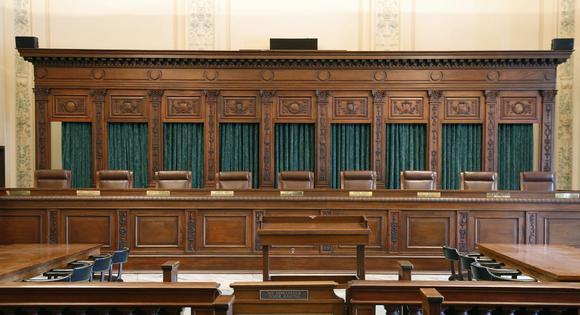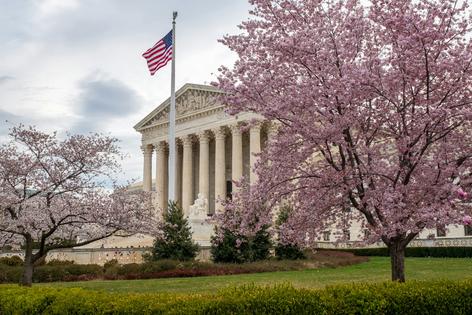Supreme Court of Oklahoma says no to Catholic charter school – but this may not be the end of the boundary-pushing saga
Published in News & Features
In Oklahoma, the start of the school year is just six weeks away. But one closely watched school that had planned to open in 2024 is now in limbo: St. Isidore of Seville Catholic Virtual School, a tuition-free, online, K-12 institution.
St. Isidore received a controversial go-ahead from a state school board in 2023. Like all charter schools, it would have been funded with public money, but with more independence than typical public schools. St. Isidore’s would have been the nation’s first religious charter school, raising immediate concerns about its constitutionality.
Oklahoma’s attorney general, Republican Gentner Drummond, soon filed suit against the charter school board, arguing that the school would have violated both the state and federal constitutions. The dispute reached Oklahoma’s Supreme Court in April 2024.
The court rendered its decision on June 25. In a 7-to-1 judgment, the court invalidated the attempt to open St. Isidore, directing the statewide virtual charter school board to rescind its contract. Yet in a vote four days later, the board declined to do so, indicating the school would not accept public funding until July 25, 2025, at the earliest – essentially delaying its opening.
Charter schools are at the heart of the parental choice movement, which pushes for parents to have greater control in selecting where their children attend school, without having to pay private school fees. The country’s almost 8,000 charter schools educate about 3,700,000 students, or 7.4% of U.S. children.
Parent choice advocates may have thought the timing was right to try to open a faith-based charter school. Three recent U.S. Supreme Court cases expanded the boundaries of state aid to faith-based schools and their students, ruling that they cannot be denied generally available aid solely due to their religious status.
As one who teaches and researches legal issues involving religion and education, I believe Drummond v. Oklahoma Statewide Virtual Charter School Board has the potential to further expand the boundaries of aid to faith-based schools and their students – a dramatic change worth watching.
All three of the recent U.S. Supreme Court cases relied on a legal idea I have written about called the “child benefit test.” According to this construct, it is constitutional under some circumstances to provide public funds to students who attend faith-based schools, or to their parents – but not directly to the schools, as would have happened with St. Isidore.
The first of these cases, 2017’s Trinity Lutheran Church of Columbia v. Comer, dealt with a Christian preschool that was denied public grants to improve safety in its playground, which was open to the public when classes were not in session. School administrators sued, arguing that this constituted religious discrimination in violation of the First Amendment’s protections for freedom of religion. The high court agreed, reasoning that denying generally available funding, for which Trinity Lutheran was “otherwise qualified, solely because it is a church, is odious to our Constitution all the same, and cannot stand.”
Three years later, Espinoza v. Montana Department of Revenue further opened up government aid to students attending faith-based schools. The court ruled that Montana’s tax credit program for parents sending their children to independent schools must apply even if those schools are faith-based.
...continued













Comments